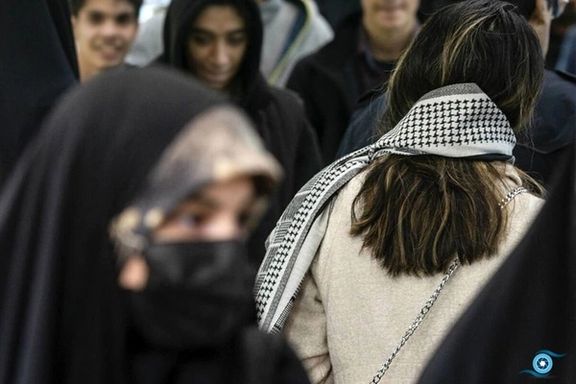A member of the Parliament's Judicial Committee, Mousa Ghazanfarabadi, told the media Tuesday that the new hijab bill stuck in the legislative process, had been modified and sent to the constitutional watchdog, the Guardian Council, for approval.
If approved, the Pezeshkian administration will no longer be able to abide by its promise to voters to withdraw the bill.
Pezeshkian promised voters to stop hijab patrols and violence against women for failing to meet compulsory hijab standards. Still, Police officials insist that implementation of their hijab enforcement initiative, known as the Nour (Light) Plan, is to continue.
Under the Plan, thousands of businesses have been shut down for failing to ensure compliance among their customers. Similarly, tens of thousands of cars have been impounded for carrying unveiled passengers.
The Guardian Council's approval will also put Pezeshkian in a difficult position because he is legally required to sign and officially communicate the legislation to government bodies within five days of its approval.
In the past, presidents like Hassan Rouhani, Mahmoud Ahmadinejad, and others have repeatedly refused to acknowledge or enact legislation they opposed. In such instances, the responsibility to act falls to the Speaker of Parliament.
When Rouhani refused to sign the controversial "Strategic Action Law to Lift Sanctions" that the Parliament passed in December 2020, Speaker Mohammad-Bagher Ghalibaf took almost immediate action. This time he may be reluctant to do so despite his previous support of the bill. He seems to be forming an alliance with Pezeshkian against ultra-hardliners of the Paydari (Steadfastness) Party in the Parliament.
Bringing up the hijab bill amid a hectic time for the Parliament and the president, both elected this year, is quite significant, an activist close to Pezeshkian's campaign told Iran International.
The bill passed by the previous parliament was last returned to the legislature to resolve an issues the Guardian Council had discovered in the bill "based on Sharia and the Constitution" in late March. No further action was reported by the Parliament until Tuesday.
"The legislation has been shuffling back and forth between the Parliament and the Council for nearly a year. The Council has no fundamental objections to the bill, but they delayed its approval because they feared the backlash from the public while Raisi was in office. They have no such qualms about Pezeshkian," he said.
The legislation has been shuffling back and forth between them and the Council since September 2023. Very few issues that kept the Council from approving the bill have ever been disclosed to the public.
Ghazanfarabadi revealed on Tuesday that the last time the Council sent the legislation back to Parliament for amendments, it objected to a clause that made the police responsible for arresting women who refused to cooperate or identify themselves when stopped by hijab enforcers. The legislation has since been amended to require a prosecutor's arrest order, in accordance with the Council's demands, he added.
The bill, originally drawn up by the government of President Ebrahim Raisi in July 2023, is officially titled "Protection of Family Through Promotion of Hijab and Chastity Culture" and passed the parliament in September 2023.
Lawmakers mandated the Judicial Committee to review and amend the bill behind closed doors instead of putting it to debate on the floor which modified the bill to make it much tougher than originally intended and costly to the government.
Deducting cash fines immediately from hijab offenders' bank accounts when their "infringement" is recorded by traffic cameras, without their consent, is one of the most controversial parts of the legislation.









